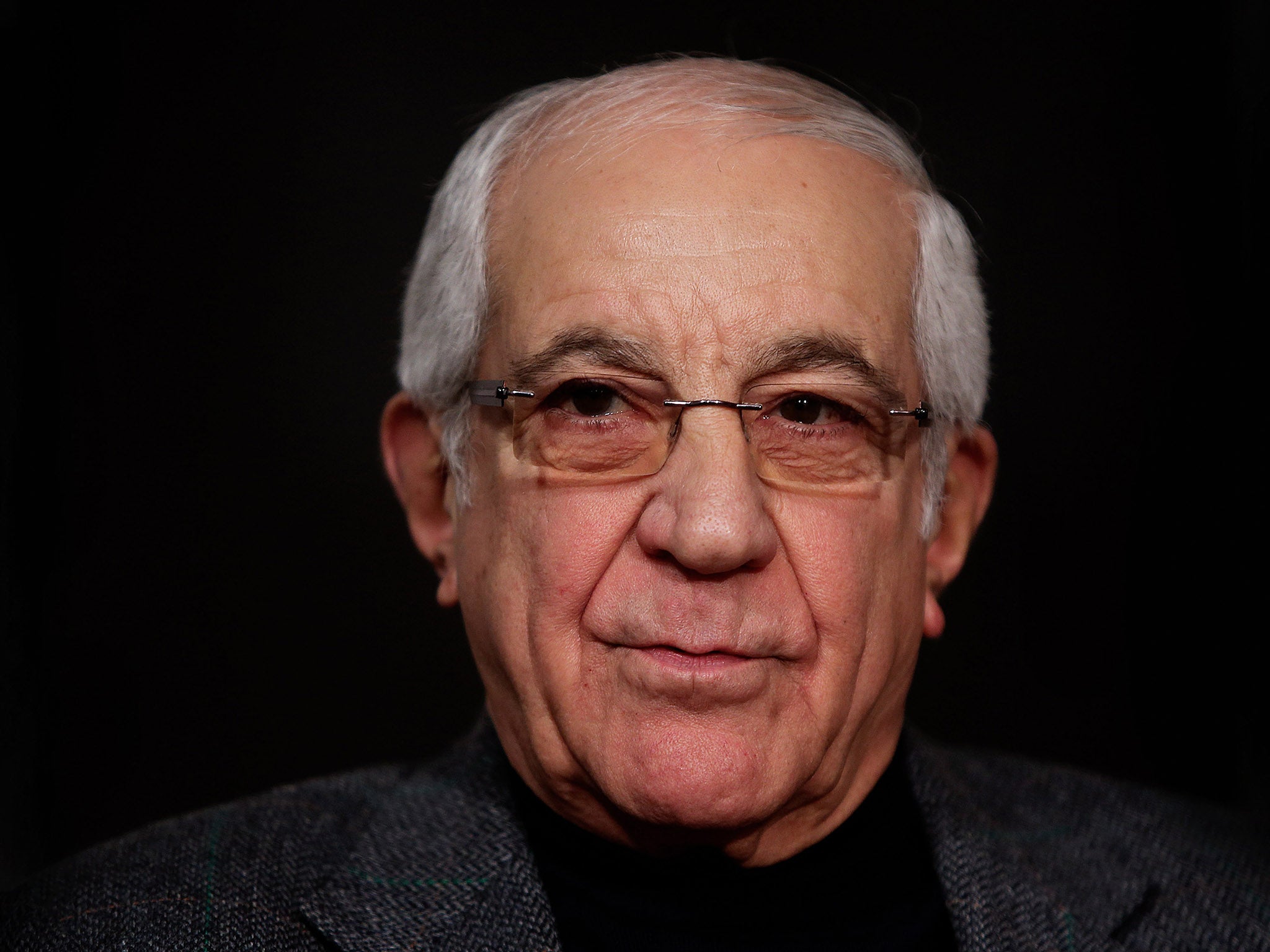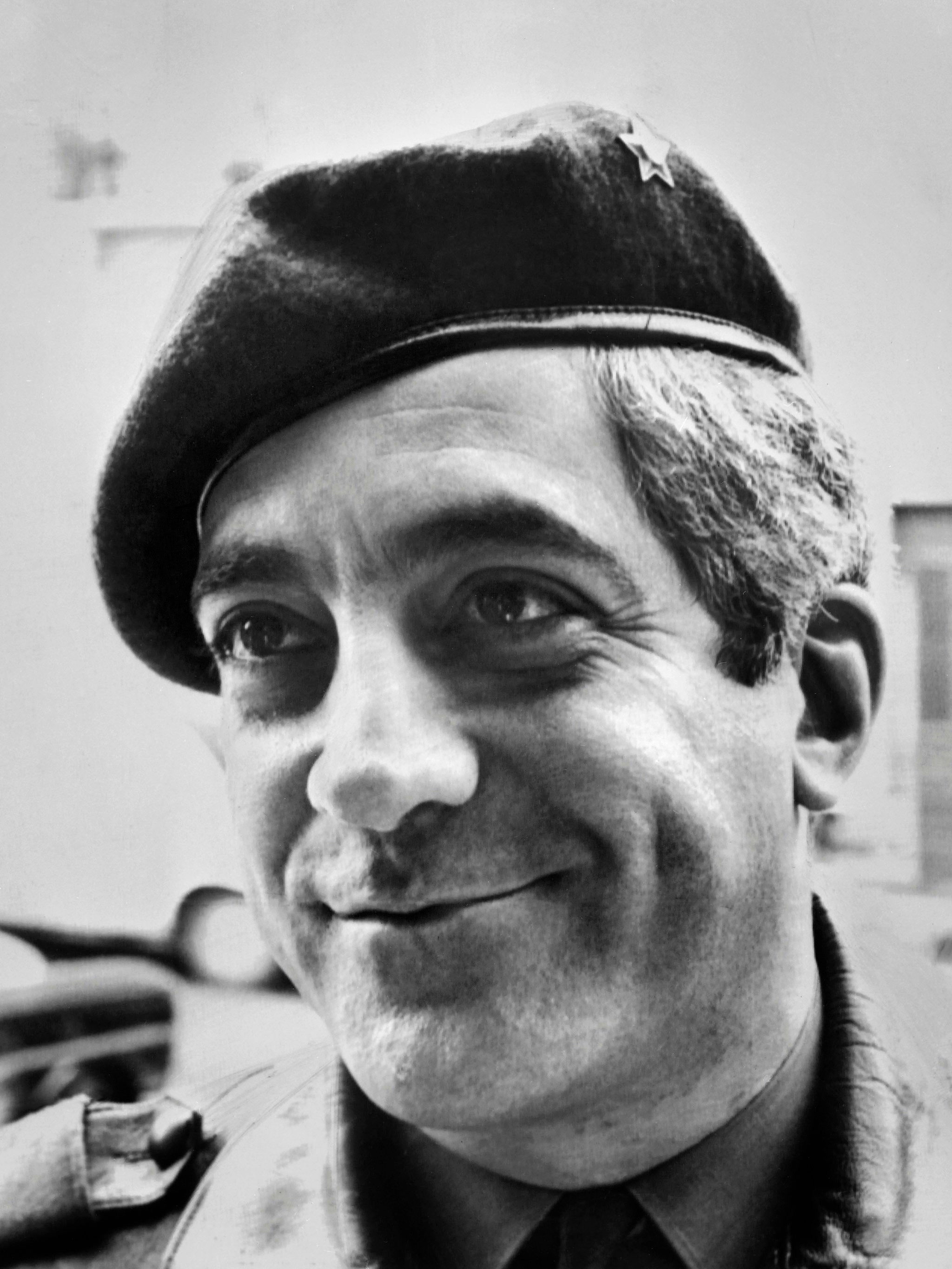Otelo Saraiva de Carvalho: Leader of the Carnation Revolution
Otelo was considered a hero to many Portuguese after helping to restore democracy after nearly 50 years of right-wing dictatorship

Otelo Saraiva de Carvalho was a 37-year-old leftist Portuguese army captain when he led the “Carnation Revolution” on 25 April 1974 − in reality an almost bloodless military coup that restored democracy to Portugal after almost half a century of right-wing dictatorship.
It was so called because ecstatic people in the streets placed red carnations in the rifle barrels of equally jubilant soldiers. The uprising effectively ended Portugal’s colonial rule over the African nations of Angola, Mozambique and Guinea-Bissau, all of which became independent within a year.
Four decades later, an NBC News report from Portugal described the revolution as “the world’s coolest coup”.
Saraiva de Carvalho, who was offered the rank of four-star general after the revolution but turned it down and retired as a lieutenant colonel, has died aged 84.
Otelo, as he was widely known, was considered a hero to many Portuguese and Africans for uniting the army with the people to restore democracy and for helping Portugal’s African colonies gain their independence. But that did not translate to political power; he twice ran unsuccessfully for president in the years following the revolution.
He also drew the ire of those who believed he tried to take the revolution too far and had become a radical leftist, even a terrorist. He was accused by some in the right-wing media of trying to turn Portugal into what they feared would be “a European Cuba” under the influence of his friend Fidel Castro.
In 1987, he was sentenced to 15 years in prison for being the “intellectual author” of crimes committed by the shadowy left-wing terrorist group called the Popular Forces of 25 April, known as FP-25, which carried out about 20 bomb attacks that killed a dozen people in Portugal between 1980 and 1986.
During his 19-month trial, Saraiva de Carvalho had said “history will absolve me”, a phrase famously used by Castro.
Saraiva de Carvalho always said he had “zero involvement” with FP-25, only with the legal leftist political party the Popular Unity Force, although he said the party may have been infiltrated against his knowledge by FP-25 extremists. Two members of FP-25 testified against him in return for immunity, witness protection and plastic surgery. More than 50 others were jailed for their alleged involvement with FP-25.
Saraiva de Carvalho was released from the Caxias military fort outside Lisbon after five years and eventually pardoned by parliament in 1996 at the urging of president Mario Soares as a gesture of democratic reconciliation.
Otelo Nuno Romao Saraiva de Carvalho was born 31 August 1936, in Lourenco Marques, now Maputo, the capital of the African state of Mozambique. His father was an official in the colonial postal and telecommunications service CTT. His mother, from what was the Portuguese colony of Goa in western India, was a railway clerk and theatre-lover who named their son after the Shakespearean character Othello.
Saraiva de Carvalho attended state schools in Lourenco Marques at a time when Portugal was engaged in several wars against independence groups in its African colonies. He enrolled in the military academy in Lisbon in 1955, at the age of 19, and was assigned to Angola as an artillery captain in 1961. In 1960, he married Dina Maria Afonso Alambre – also Portuguese and born in Lourenco Marques.

After teaching cadets at a training school in Agueda, Portugal, from 1964 to 1968, he returned to Africa to fight independence insurgents in Portuguese Guinea (now Guinea-Bissau) from 1970 to 1973. Throughout his youth and early military career, he had built up a respect for the guerrillas he was fighting, many of them trained by Cubans sent by Castro. He increasingly identified with Africans’ struggle for independence from his own country.
That thought was very much with him when he returned to Portugal as an army captain in 1973, where he sought out like-minded junior officers and began plotting to oust the right-wing dictatorship he said was oppressing not only its own people but the peoples of Portugal’s African colonies.
His home in Lisbon became the centre for secret meetings of what became known as the Armed Forces Movement (MFA to the Portuguese), which elected him as head of its executive committee.
He was also inspired by Antonio de Spinola, a cavalry officer noted for his monocle and who had written a book around that time, Portugal and the Future, saying Portugal should end its wars in Africa. Saraiva de Carvalho had rightly assessed that the vast majority of Portuguese would back a “friendly” military coup to oust right-wing prime minister Marcello Caetano, who had taken over the country's leadership in 1968 after 42 years under dictator Antonio de Oliveira Salazar.
At 25 minutes past midnight on 25 April 1974, on Saraiva de Carvalho’s instructions, a radio station played the stirring folk song “Grandola, Vila Morena”, a signal for the coup to begin.
He sent his most trusted troops to Lisbon’s Quartel do Carmo, a police and military barracks where Caetano, having got wind of an uprising, had retreated. Had Caetano resisted, and the barracks backed him, bloodshed would have been inevitable, even a civil war possible.
An armoured vehicle rumbled up to the barracks and pointed its machine-gun at the building before Captain Fernando Salgueiro Maia got out, walked up to the defending soldiers and demanded their surrender along with Caetano. It emerged later that the young captain had a grenade in his pocket, ready to die for the revolution. A brigadier general in front of the barracks shouted: “Shoot that man!” No one fired, the brigadier general realised his men were not with him, and he and Caetano surrendered.
In another area of the city, members of the political police, known as the PIDE, fired on civilian demonstrators, killing four. Otherwise, it was a bloodless coup, and people took to the streets in joy, embracing young soldiers and sticking red carnations in their automatic rifles.
Portugal flourished after the revolution, with improved education and a thriving economy, but debt gradually surged and the country would have to be bailed out by international creditors including the International Monetary Fund and the European Union, with severe austerity measures introduced. Saraiva de Carvalho had dreamed of a socialist state, but the troubled economy, plus the fact that Portugal was a strongly Catholic nation, fearful of communism, meant his presidential ambitions went nowhere.
Confirming his father’s death, his son, Sergio Bruno Carvalho, spoke of his “courage, selflessness and service to the homeland”, according to the news service Lusa. “He deserved much more from Portugal, much more recognition. One of the main causes of my dear father’s death was sorrow and bitterness; by the untrue narratives that were created about him, and by the death of his wife, Dina, who loved him devoutly.”
His wife died in December 2020. He is survived by his son and a daughter, Paula. Another daughter, Claudia, died aged nine of malaria in Portuguese Guinea (Guinea-Bissau) while her father was based there.
While at Caxias in the late 1980s, he established a personal relationship with a prison official, Maria Filomena Morais, who became a longtime companion.
Otelo Saraiva de Carvalho, military officer, born 31 August 1936, died 25 July 2021
© The Washington Post
Join our commenting forum
Join thought-provoking conversations, follow other Independent readers and see their replies
Comments